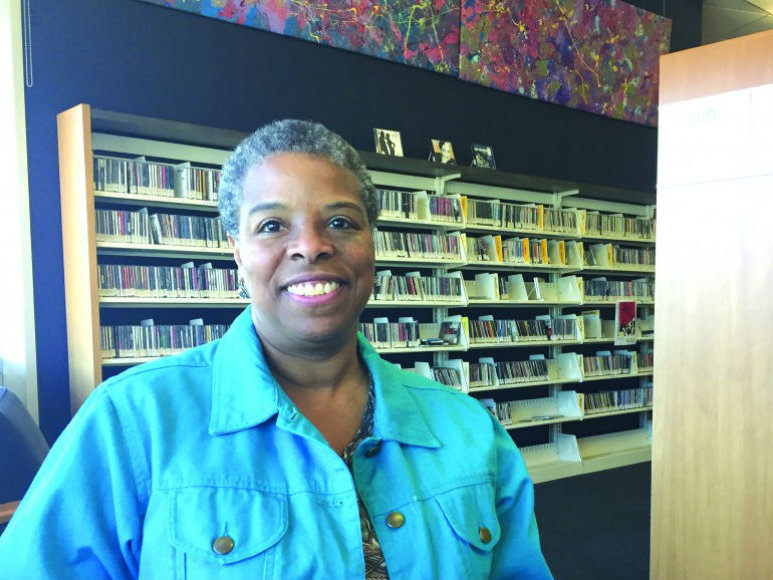Studies show that older African Americans — for genetic, biological and socioeconomic reasons — are almost twice as likely as whites to develop Alzheimer’s disease. In celebration of Black History Month, the sixth annual Solomon Carter Fuller Alzheimer’s event was held earlier this month on Madison’s south side to provide important information and support.
The two-day event started at Fountain of Life Church on Friday night with Dr. Consuelo Wilkins, executive director of the Vanderbilt-Meharry Alliance leading "A Community Discussion about Alzheimer’s Disease" where she addressed Alzheimer’ disease and its effects in the black community with special attention to the effects on black men.
Dr. Solomon Carter Fuller was the first black psychiatrist in the United States and played a key role in the development of psychiatry in the 1900s. Dr. Carter Fuller also worked closely with Dr. Alois Alzheimer, the namesake of Alzheimer’s disease.
Many Americans dismiss the warning signs of Alzheimer’s, believing that these symptoms are a normal part of aging. This is of even greater concern for African Americans, who are two times more likely to develop late-onset Alzheimer’s disease than whites and less likely to have a diagnosis of their condition. This results in less time for treatment and planning.
At the Urban League of Greater Madison on Saturday, there were free and confidential memory screenings available to community members. There were also speakers who were very familiar with Alzheimer’s disease who shared their experiences with the attendees.
Keretha Cash was one of the speakers in the morning sessions on the caregivers panel where she shared some of her care-giving experiences with the attendees at the event.
"I was really impressed that they had such a variety of experiences," Cash tells Madison365. "My mother has already passed, but my experience was different from the young lady whose father just passed last week. And that was different from another speaker whose father is still living. So many different experiences that we were able to share with each other."
This was the first time Cash has been involved in the annual Solomon Carter Fuller Alzheimer’s event, but she has spoken before at a breakfast that the UW Alzheimer’s study hosted on brain donation. Cash is also a participant of that study.
"One of the comments I got afterwards made me remember how I knew that something wasn’t right with my own mother," Cash says. "There are certain situations that you see how your parent or loved one handles something and how out of character they may act. These peculiar cues that something’s not right here."
In Cash’s situation, her mother, who was in her early 70s, would not remember certain things or mishandle finances – something that had always been her strong suit.
"My advice to anybody who may be dealing with a situation like I did would be to call the Alzheimer’s Association. There are resources out there that can really help. Talk to [Alzheimer’s & Dementia Alliance of Wisconsin Diversity Coordinator] Charlie Daniel, too.
"When I was going through this with my mother, I went to a ‘Children with Parents with Alzheimer’s Group’ and they were very helpful in helping me find coping skills and encouraging me not to feel guilty about taking time for myself," she adds. "Just hearing what over people are going through helped so much. It’s important for people to know that they are not alone."
The sixth annual Solomon Carter Fuller Alzheimer’s event helped raise awareness of Alzheimer’s disease in communities of color and informed about risk factors, incidence rate, ways to reduce the risk and steps to take if memory problems occur. It helped to raise the comfort level for people in seeking help and put them in contact with organizations like the Alzheimer’s & Dementia Alliance, for support, information, education and advocacy.
Many people dismiss the warning signs of Alzheimer’s disease because they believe that the symptoms are a part of normal aging. Unfortunately, they are too often diagnosed too late and miss the opportunity to get the best care possible. This is of even greater concern for African Americans.
Sanford Jones was also talking to a group about his father whom he describes as being "sometimes there and sometimes not."
"It’s been awhile since he was diagnosed," Jones tells Madison365. "Over time, my father began to become extremely agitated and have memory loss. He was doing a lot of medication.
"Today, I was talking to people about my journey and the things that I’ve seen," he adds. "After watching my dad’s memory begin to fade, I wanted to know much more about Azheimer’s including the hereditary part of this disease."
Jones says that the progression of his dad’s disease has slowed down considerably since he sought help. "I know what we are headed into if he continues to live for a long time, but for him, it has slowed down considerably," he says.
What kind of advice does he have for others with loved ones facing Alzheimer’s?
"Be hands on. Hands on. We have to be involved. They need us now more than ever," Jones says. "If you turn their care over to somebody else and you’re not there … than you really don’t know what kind of care they are getting. My experience has been: the more family involvement, the better the care.
"You’re in this battle until it’s over. It won’t get better any time soon … unless they find the cure," he adds. "So you need to be in there and fighting and trying to make the journey as easy as possible. People need to know that there are many things that you can do and that there’s a lot of help to be had as far as Alzheimer’s goes. The most important message I could give to anybody is that family involvement is crucial."
For more information or to reserve a screening spot call the Alzheimer’s & Dementia Alliance of Wisconsin at (608)232-3400.







